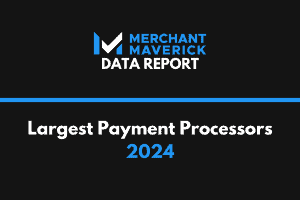
Rental property depreciation allows property owners to write off the costs of purchasing and improving rental property on their income tax returns. Typically, a rental property depreciates at a rate of about 3.6% per year for 27.5 years. Depreciation begins after the property is available to rent.
Aug 18, 2024
Filed under: Cost Segregation

There are many reasons you need a salon-specific POS system. Those POS systems may include every feature your salon, spa, or other service-based business needs — they are designed with your industry in mind. Others, however, might be close to perfect but don’t offer some of the built-in features you want. This is where POS integrations come in.
Aug 16, 2024
Filed under: Point of Sale

You (and your employees) need specific tools to be successful and help your customers leave feeling satisfied. Save yourself time, money, and energy by improving your customer retention and reducing your employee turnover with a salon-specific POS system.
Aug 15, 2024
Filed under: Point of Sale

A merchant acquirer is a financial entity, frequently a bank, that provides the settlement infrastructure for credit and debit card transactions. They also represent the backend of popular payment processing platforms like PayPal, Square, and Stripe, which in turn provide middleman services between the business and the merchant acquirer.
Jan 16, 2024
Filed under: Data Reports

Bonus depreciation is a tax incentive that allows businesses to write off a large percentage of the cost of an asset in the first year it’s placed into service. In 2024, 60% of the cost of qualified property can be written off in the first year it’s placed in service.
Aug 14, 2024
Filed under: Cost Segregation
In a perfect world, you would be able to ask other owners in your industry what POS system they use. If, however, you’re just getting started and not having luck in that regard, we would recommend checking out review aggregate sites like Software Advice, G2, the BBB, and Trustpilot to name a few.
Jan 12, 2024
Filed under: Point of Sale

The best point of sale systems for bars, nightclubs, breweries, and pubs will have bar-specific software integrations, ample hardware options, low payment processing fees, and give you a choice of payment processor.
Aug 26, 2024
Filed under: Point of Sale

Toast POS costs $0-$165+/month for POS system software, $627-$1,034 for POS hardware, and 2.49%-3.69% in payment processing fees unless you get a custom quote on a Toast POS pricing plan. Add-ons like Toast Payroll and Toast Kitchen Display System also require a custom quote.
Jun 10, 2025
Filed under: Point of Sale, Restaurant POS

Most POS systems are not equipped to efficiently take in all this data. So, you will need accounting software like QuickBooks Online to keep track of expenses over time. Alternatively, you can save your receipts and manually add all your expenses when filling out your taxes.
Jul 3, 2024
Filed under: Point of Sale

An ERC bridge loan is a short-term loan that is used to “bridge” the cash flow gap between the time a person applies for the Employee Retention Credit and when their refund is received months later.











